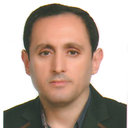Dracocephalum: novel anticancer plant acting on liver cancer cell mitochondria.
Palavras-chave
Resumo
Dracocephalum kotschyi Boiss. (Labiatae) is a native Iranian medicinal plant which has been used in combination with Peganum harmala L. as a remedy for many forms of human cancer especially leukemia and gastrointestinal malignancies. Hepatocellular carcinoma (HCC) is the third leading cause of cancer-related death worldwide. In this investigation HCC was induced by a single intraperitoneal injection of diethylnitrosamine (DEN) in corn oil at 200 mg/kg body weight to rats. Two weeks after DEN administration, cancer development was promoted with dietary 2-acetylaminofluorene (2-AAF) (0.02%, w/w) for 2 weeks. Serum alpha-fetoprotein (AFP) concentration, serum alanine transaminase (ALT), aspartate transaminase (AST), and alkaline phosphatase (ALP) activities were also determined for confirmation of hepatocellular carcinoma induction. Then rat hepatocytes were isolated with collagen perfusion technique and tumoral hepatocytes were sorted by flow cytometry. Finally isolated mitochondria obtained from both tumoral and nontumoral hepatocytes were used for any probable toxic effect of Dracocephalum kotschyi ethanolic extract. Our results showed that D. kotschyi extract (250 µg/mL) induced reactive oxygen species (ROS) formation, mitochondrial membrane permeabilization (MMP), and mitochondrial swelling and cytochrome c release only in tumoral but not nontumoral hepatocyte. These findings propose Dracocephalum kotschyi as a promising candidate for future anticancer research.





